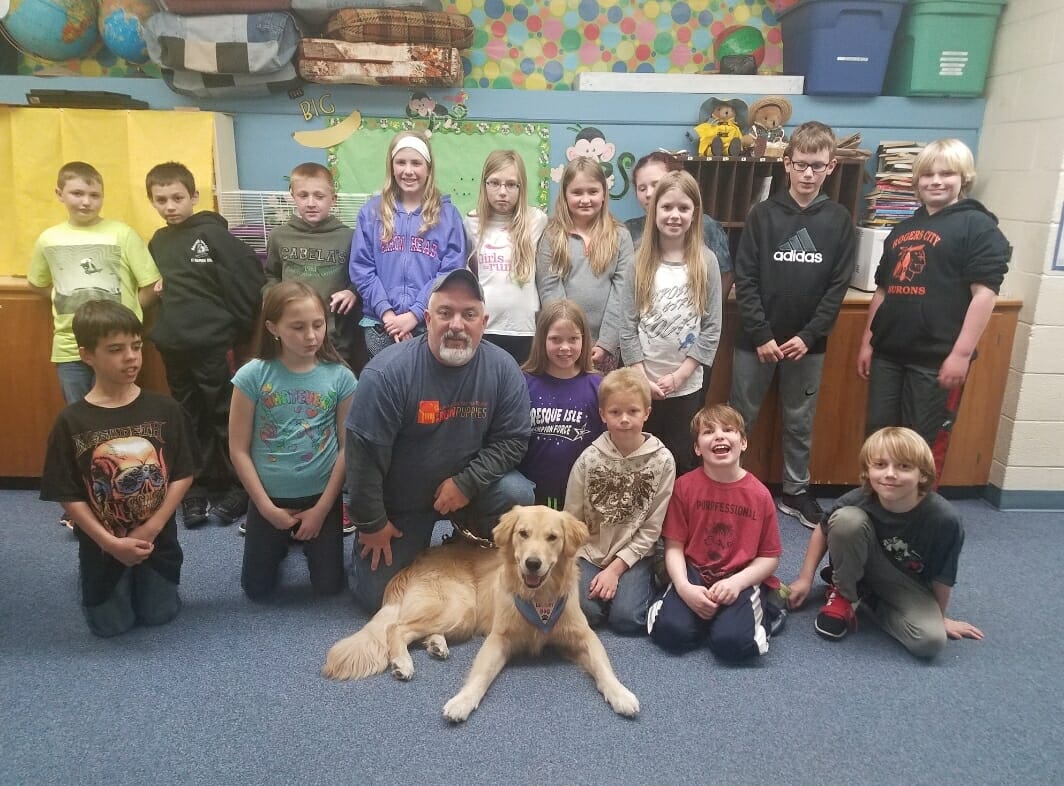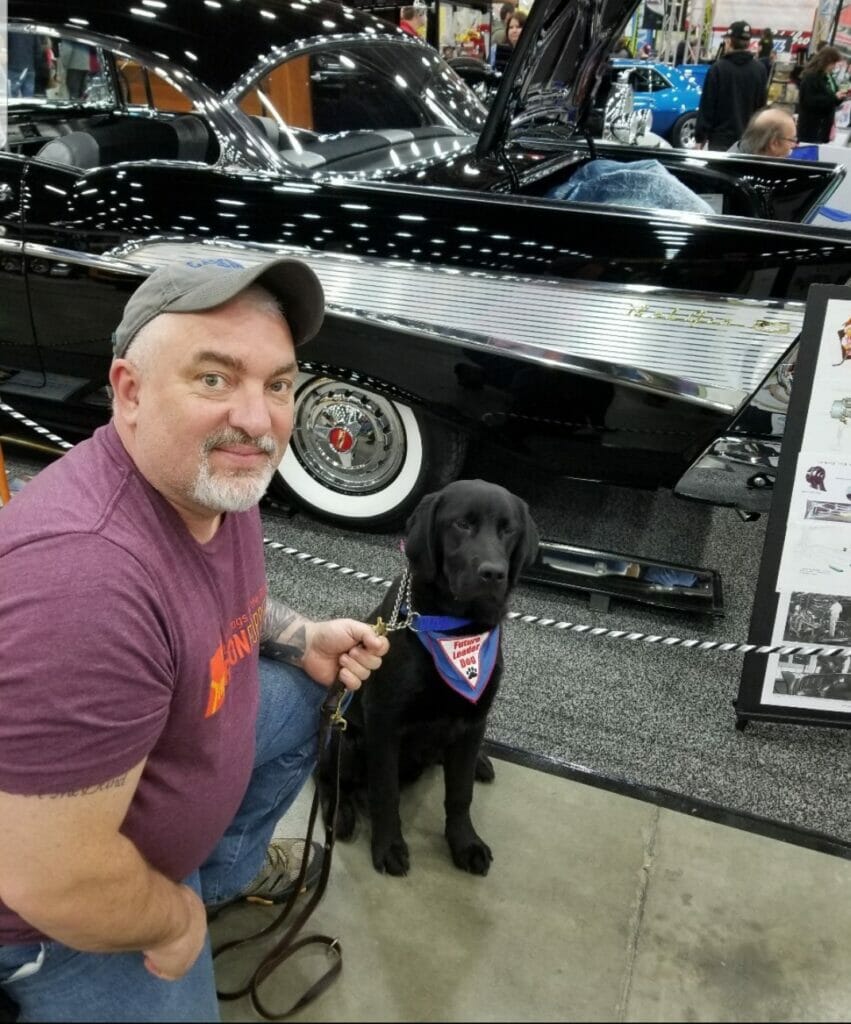Michigan Volunteer Trains Leader Dogs to Help Visually-Impaired Gain Independence

Meet Daily Point of Light Award honoree Ray Ziegler. Read his story and nominate an outstanding volunteer or family as a Daily Point of Light.
Ray Ziegler receives his future Leader Dogs when they’re just 8-weeks old. Labrador retrievers, golden retrievers and German shepherds, these fur babies ready to be man’s best friend, but they arrive with very important missions: to be trained to serve as guide dogs for the blind or visually impaired.
As both a Leader Dogs for the Blind puppy raiser and Prison Puppies counselor, the 55-year-old Southgate, Michigan volunteer is paying it back in more than one way. Ray trains one puppy each year to become a guide dog, counsels prison inmates to raise their own future Leader Dogs, and finally, that fruitful work results in trained, socialized dogs who can change the life of a blind or visually-impaired person. Provided at no cost, Leader Dogs are the answer for thousands of people in critical need of service as the simplest to the most complex everyday tasks become daunting due to loss of sight.
Raising 12 dogs thus far and impacting countless others through his service, Ray is changing his community, one puppy at a time.
What inspires you to volunteer?
I’m inspired because of the way volunteerism makes me feel. You’re doing something for someone who you may never meet, or they may never be able to thank you.
Describe your role with Leader Dogs.
- Leader Dog puppy raiser – As a puppy raiser, I receive one puppy each year, and for 12-months, I train that future Leader Dog. We socialize them so when they start their Leader Dog formal training, they are used to being around lots of people, different smells, noises, distractions. That includes parking lots and high traffic crossings, busy events with lots of people. These dogs are a part of my life, they go to work with me each day, they go to sporting events with me.
- Leader Dog Prison Puppies counselor – I’ve served as a counselor to inmates in two different prisons in the state. I drive over 1,000 miles roundtrip each month to the current prison I volunteer at, where I counsel inmates on how to raise their Leader Dogs. For these inmates, this is the first structured opportunity they’ve had in their lives.
Share one personal story with me from your volunteerism.
This service is life-changing for the visually impaired. One mother told me that her son was a shut in, but because of his Leader Dog, he was able to graduate with a masters degree. Another started with his new Leader Dog, he now has a family and children, and works a 40-hour a week job. This wouldn’t have happened without that Leader Dog. The guide dogs give them freedom, because before, you would have had to have someone holding your elbow, walking you around.
Explain how your service is changing not just the lives of the visually-impaired, but prison inmates too.
Each puppy is assigned to three inmates, who learn to break down barriers and work together to train the dogs. The inmates are good candidates to raise these puppies, because they are screened, required to maintain good behavior, and have time to give. A prison ward once asked me, ‘do you want (inmates) to get out harder than they came in, or do you want them to get out with an education, where they can fit into society?’ When they turn a puppy in after that year of service, they break down just like you or I would. It’s oftentimes the first thing they’ve loved. Many of these guys, they were born to go to prison by the way they were raised. They never had anything to care for or love, they never had anyone else to care or love them. When these guys get paroled, they’ll contact me and tell me that they’re a completely different person because of the Prison Puppy program. Hearing that, you know that you made the world a better place through your service.

What’s your favorite part of training?
When we do our local elementary school presentations. I don’t name my puppies, I let local elementary school students name the puppy. It’s just like an election, they’ll vote on a name.
What’s been the most rewarding part of your service?
It’s rewarding to help someone you’ve never met. If there were more people giving to others, the world wouldn’t be the way it is today.
In one word, what does volunteering mean to you?
Rewarding. My volunteerism started when I heard an advertisement on the radio for Leader Dogs. I came home and told my wife I’d apply to be a volunteer. Her exact words were, ‘Nobody is going to give you a puppy.’ This service is a major part of our life, and it’s changed my life for the better.
How can readers help?
If you have interest in participating in the Leader Dogs program or would like more information, please visit the Leader Dogs website.
Do you want to make a difference in your community like Ray Ziegler? Find local volunteer opportunities.
